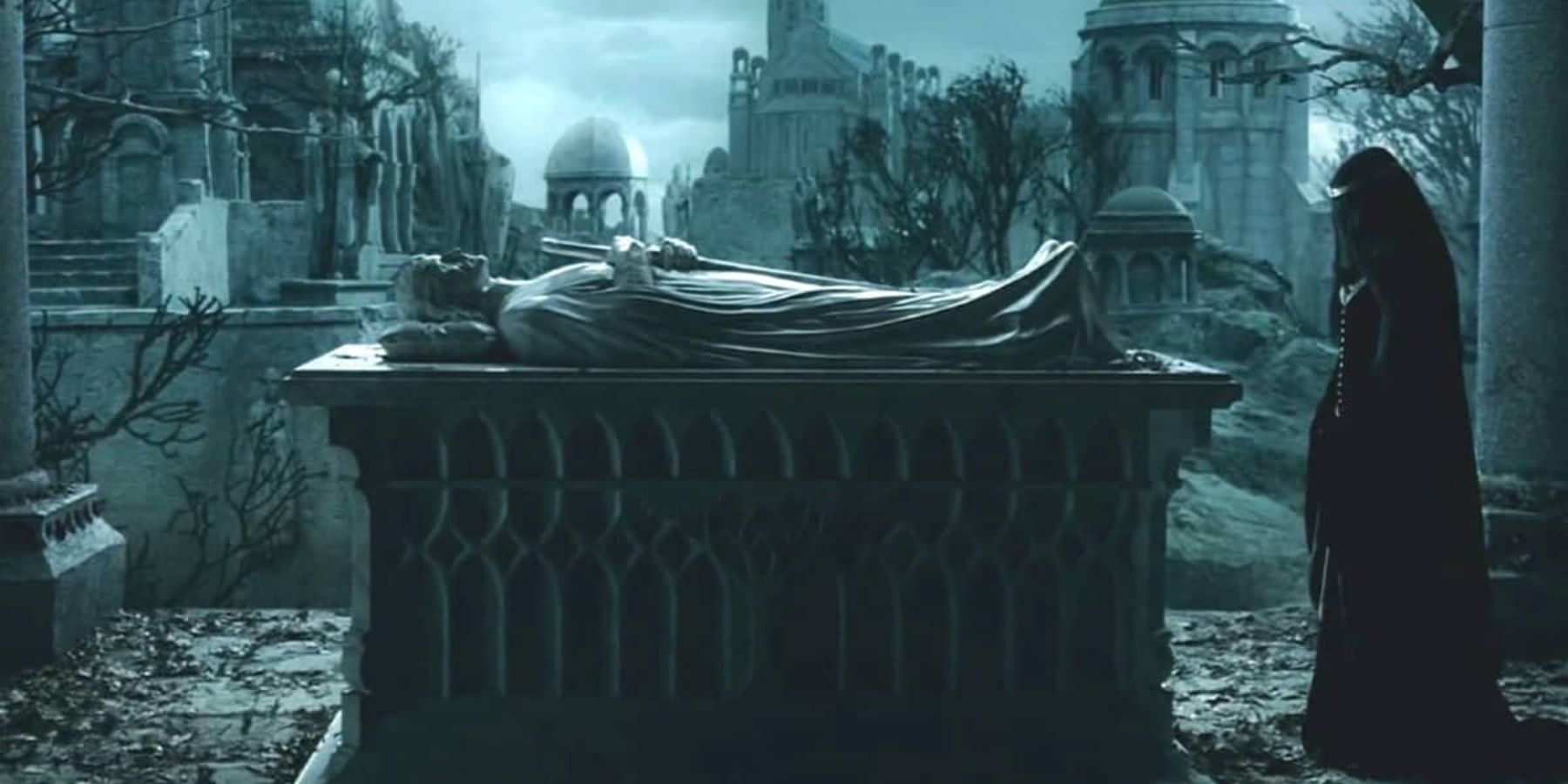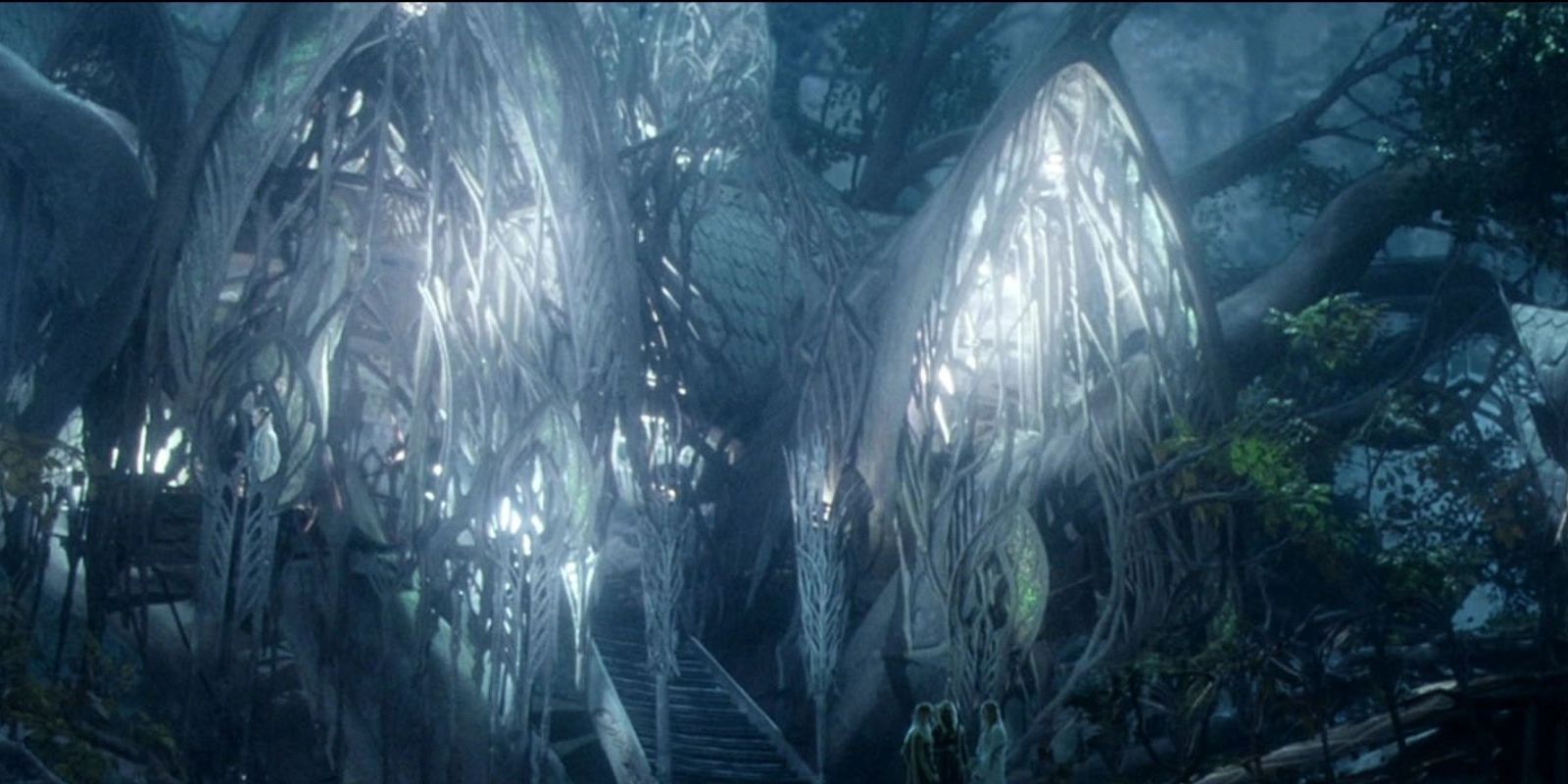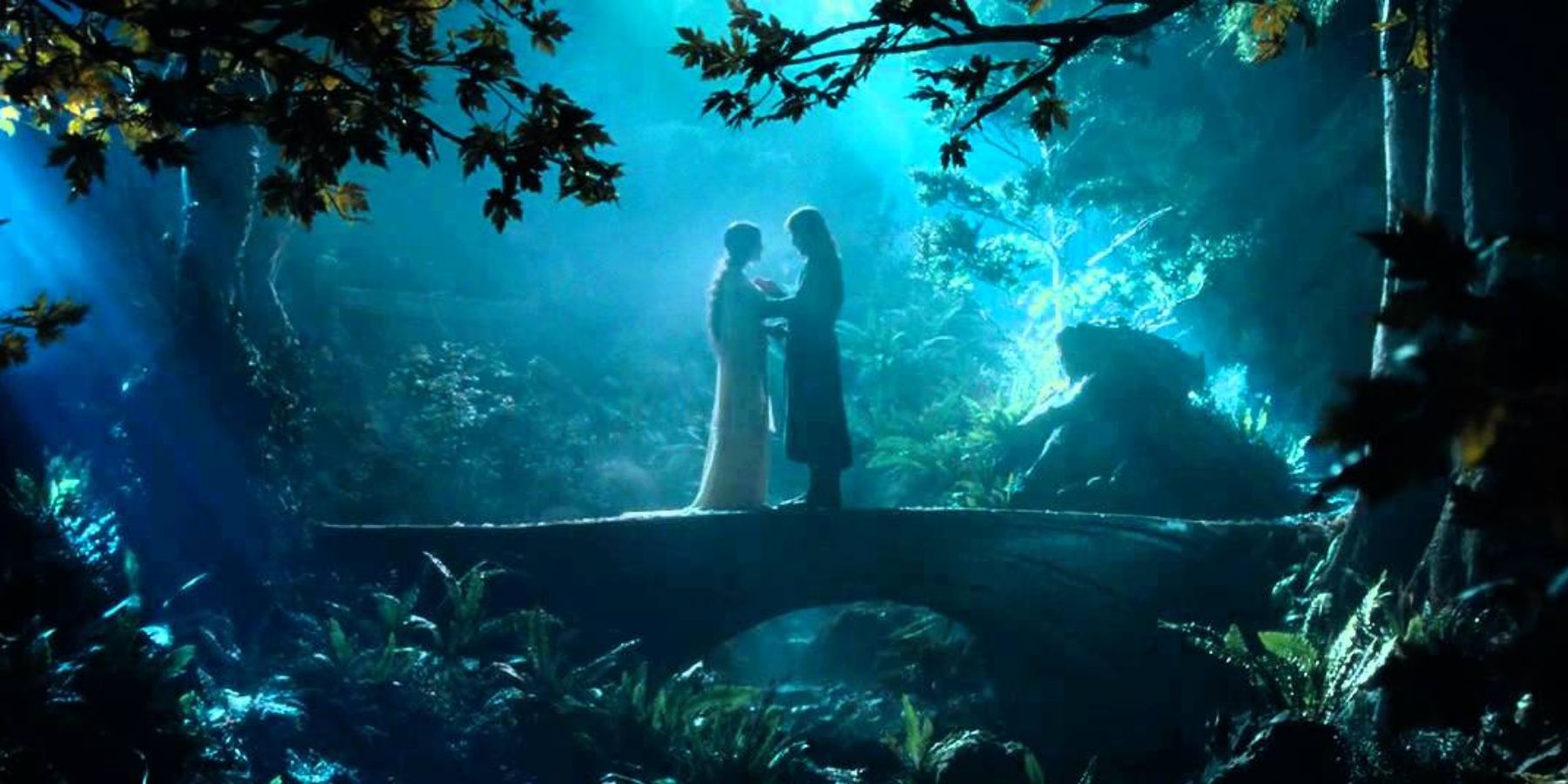Arguably one of the most controversial and highly debated aspects of the Lord of the Rings stories is the love triangle that exists between Aragorn, Arwen, and Eowyn. Aragorn is one of the most heroic characters in the franchise. He is noble and kind in his treatment of others, as well as selfless and admirable, so it’s easy to see why the two women would fall for him.
Eowyn, on one hand, is a brave and fierce human maiden, which makes her seem like the ideal choice for Aragorn. However, she is also very young and hasn’t seen much in the ways of the world beyond the tragedy and the struggle that has followed her and her brother in Rohan. Arwen, meanwhile, is an elf maiden, and the light of her people. She has much more to lose in order to be with the man whom she loves, but also has a lot in common with Aragorn’s upbringing, as he was raised among the elves of Rivendell.
Ultimately, Peter Jackson’s directorial choice to bring the story of Arwen and Aragorn out of the Appendices and into the main narrative of the Lord of the Rings was an unpopular one. Ultimately, it turned Arwen’s character into what lots of fans deem as a weak-willed, wallowing woman who simply lay down to die and accept her fate, rather than fighting for what was right like Eowyn did. And this bleak and awful portrayal of Arwen is furthered long after the films, as within Tolkien’s own story, her fate is just as miserable. This is touched upon in the movies, when her father Elrond warns her of a vision he has seen, of her wasting away beside Aragorn’s grave into despair and heartbreak, when he inevitably dies as a mortal man.
This part is actually accurate to the books, as is the counterpart in which Arwen has her own vision and sees her and Aragorn’s unborn son running through the forest, almost as a sign to tell her not to board the grey ships with the rest of her people. Arwen’s vision itself doesn’t happen in the books, but it is true that they do have a son together, and that he grows to become a noble ruler and continue his father’s reign of peace and prosperity in Middle Earth. Nonetheless, he still isn’t enough to stay Arwen’s grief when Aragorn dies, just as Aragorn wasn’t enough as a child to stay his own mother’s grief after his father died in battle. History has a way of repeating itself, and Arwen, like Aragorn’s mother, is so filled with grief at the loss of her true love, that it is to her a coming of the end of all days. After a substantial period of mourning at his graveside, Arwen removes herself from the vicinity of the human race, and retreats to Cerin Amroth within the lands of Lothlorien.
This seems strange, that after giving up her immortality to be with Aragorn, Arwen would want to be separated from him and would choose her final resting place not to be beside her husband. However, when framed in the light of grief and mourning, it makes sense that the heartbreak would be too much. The only way for her to cope with the terrible loss would be to remove herself from the people that remind her of Aragorn, and be closer to the elves of her younger days. Although almost all the other elves have left the world at this point to sail across the sea, Arwen is still an elf somewhere deep in her heart, and still finds comfort in the realms where her people used to dwell, even though the trees of Lothlorien have lost their beauty and their magic with Galadriel’s parting.
Arwen herself describes this very circumstance during a conversation with Aragorn before his death, in which she says:
“I say to you, king of the Numenoreans, not till now have I understood the tale of your people and their fall. As wicked fools I scorned them, but I pity them at last. For if this is indeed, as the Eldar’s say, the gift of the One to Men, it is bitter to receive.”
In this she is saying that she used to believe giving up immortality was the greatest folly and that she could never understand why one would choose such a thing as death, and yet, having knowingly made the same choice herself in order to be with Aragorn, she knows that death is what has given her life meaning, and allowed her to be grateful for her many long years. Death and mourning are the price of this, They are now her burden to bear, and she chooses to bear it in solitude, surrounded by the echoes of her people, and to be buried in the place where her heart still remembers the light of her elven days.



